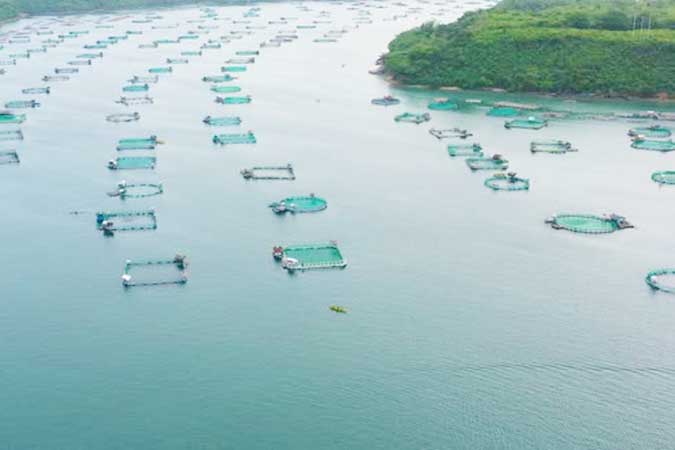
THE NATIONAL and local governments need to collaborate with industry to establish economic zones dedicated to fisheries, food security advocacy group Tugon Kabuhayan said.
Tugon Kabuhayan convener Asis G. Perez said in a virtual briefing Monday that producers also need facilities that will support production and postharvest operations.
“With government support and provision of fiscal incentives, the fisheries and aquaculture industry can generate more jobs. We are ready to venture in the promotion of consumption of processed commodities both domestically and internationally,” Mr. Perez said.
Mr. Perez said there are 379 operating economic zones, 22 of which are agro-industrial, citing Philippine Economic Zone Authority (PEZA) data.
Incentives are authorized by Republic Act No. 7916 or the Special Economic Zone Act of 1995 for ecozone locators.
Incentives include exemption from national and local taxes on their imports, tax credits for import substitution, income tax holidays, and tax-free imports of capital equipment, construction materials, specialized office equipment and vehicles, and professional instruments.
Mr. Perez said of the 22 agro-industrial zones, only those run by Shemberg Biotech Corp. and Alsons Aquaculture Corp. deal with fisheries.
Shemberg is engaged in seaweed processing while Alsons units manufacture feed and grow fish, shrimp and other aquaculture species for export.
“Despite these incentives, the uptake for locating or establishing export processing zone for aquaculture and fisheries appears to be limited,” Mr. Perez said.
“While tuna, seaweed and shrimp remain the country’s top (fisheries) export commodities, accounting for 63% or 153,667 metric tons (MT) of total volume and 58% or $531.33 million (by) value… no tuna or shrimp-related industry is PEZA registered,” he added.
Tugon Kabuhayan said the Philippines can become a dominant exporter while still bringing economic growth to local communities.
It said producers are ready to venture into promoting the consumption of processed commodities in all markets.
“This will definitely contribute to more job creation. In our estimate, even if only half of the urban population patronizes deboned milkfish (bangus), this will create additional 7,000 jobs in a year. What more if we sell deboned bangus and other value-added aquaculture products to other countries?” it said.
The Department of Agriculture (DA) and PEZA signed a memorandum of agreement in 2019 to industrialize agribusiness and promote domestic production, manufacturing and exports, and to lower import dependence.
“Both DA and PEZA recognize the need for cooperative effort in promoting and supporting investment in agricultural-oriented activities through the granting of fiscal and non-fiscal incentives and development of agro-industrial, aquamarine, and agro-forestry special ecozones,” Agriculture Secretary William D. Dar said at the time. — Revin Mikhael D. Ochave



